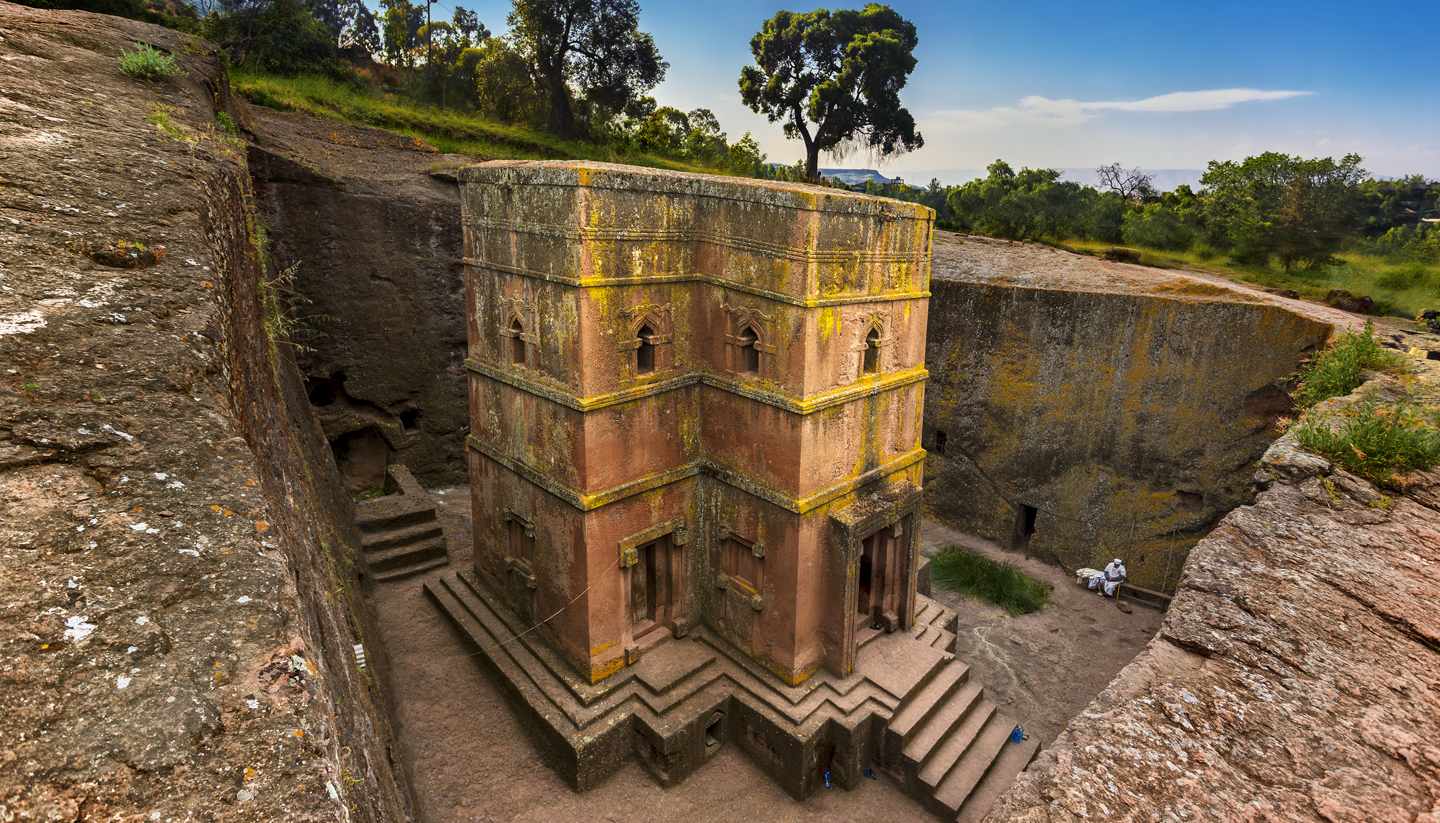Ethiopia Food and Drink
Ethiopian food is like nothing you've tried before. Having evolved mostly in isolation from neighbouring cultures, the cuisine is different to both the standard dishes found throughout sub-Saharan Africa and also to the Middle Eastern basics of North Africa.
Meals are based around the pancake-like injera, made from an endemic grain called tef. To make injera, tef flour is mixed with water and fermented for three days before it is cooked, giving it a slightly sour taste. Injera is naturally gluten-free and rich in fibre, iron and protein.
Sauces, meats and stewed vegetables are then placed directly on the injera, which is eaten with your right fingers by tearing sections off bit by bit. The spiciness of the sauces varies according to the amount of berbere, Ethiopia's famed spice-mix.
Traditional Ethiopian food does not use pork because most Ethiopians are Orthodox Christians or Muslims. Vegetarianism is also popular due to the strict fasting rituals of the Orthodox Church.
Specialities
Injera is a slightly sour flatbread roundel with a crumpet-like texture. This staple food is enjoyed three times a day and often with wat, a spicy stew made from beef (kai), chicken (doro), fish (asa), lentil (messer), chickpea (shiro), or vegetables.
Other must-try dishes include:
Ayibe: Soft crumbly cottage cheese made from cow's milk.
Dulet: Breakfast dish of pan-fried minced tripe, liver, beef, and chilli.
Enkulal tibs: Breakfast dish of scrambled eggs with peppers and tomatoes.
Kitfo: Raw or very rare ground beef marinated in a hot chilli powder, often eaten with a chewy bread made from False Banana. Tere sega is the fancy version that is often served at weddings.
Kolo: Roasted barley served in cones on the street as a snack.
Kita: Herb flatbread.
Tibs: Pan-fried goat or beef.
Must-try beverages include:
Coffee: The Ethiopian province of Kaffa is said to be the home of coffee and it is traditionally served in tiny cups.
Beer: Local lagers include Bedele, Habesha, St George and Walia.
Areke: A pure grain alcohol.
Sparkling water: Ambo is a spa town known for its sparkling mineral water, its namesake brand is most popular.
Talla: Traditional sour beer, usually made from various grains such as millet, barley or wheat.
Tej: Fermented honey wine.
Wine: Local red and dry white wines are worth trying. Notable brands include Awash and Rift Valley.
Things to know
Most hotels provide cutlery to foreign visitors. If you dine at a traditional restaurant, you will be given soap and water to wash your hands before the meal. When eating, only the right hand is used.
Tipping
In most hotels and restaurants, a 10% service charge is added to the bill. Tipping is usual, but amounts are small.
Drinking age
18.


